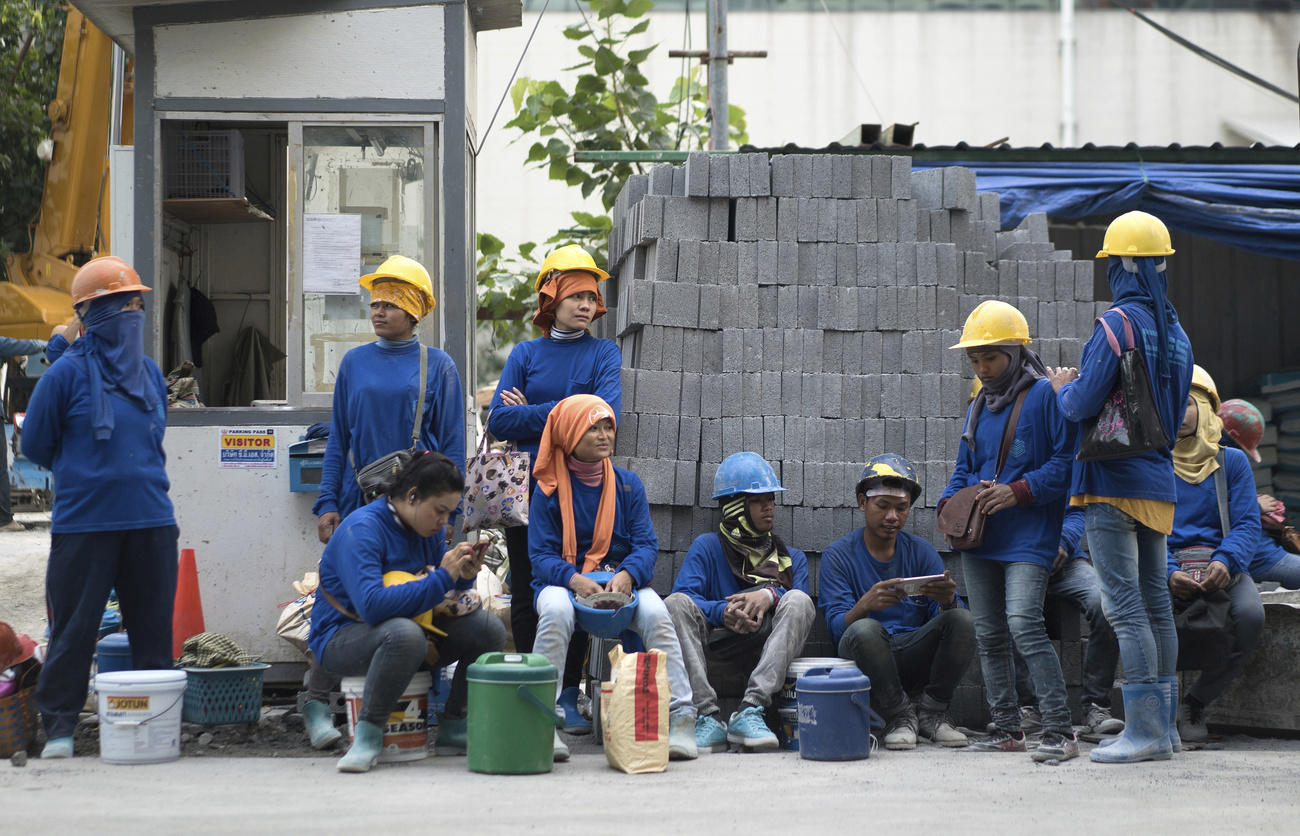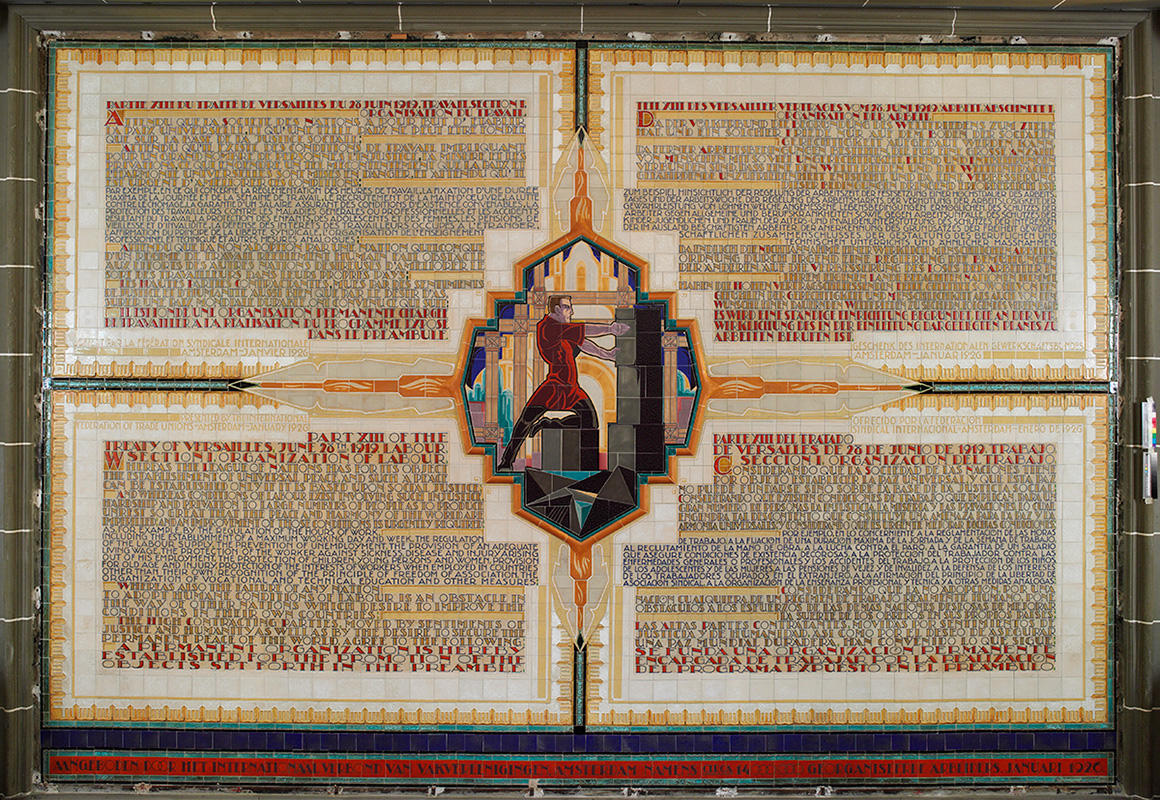Geneva conference tackles workplace harassment and future jobs

What will tomorrow’s jobs look like? The Geneva-based International Labour Organization (ILO) is seeking to understand that question as well as protect workers from violence and harassment at its annual conference that marks its 100th anniversary.
On the table is a global treaty to protect employees from workplace abuse,External link but differences persist over to what extent employers should be held responsible and whether to include specific reference to protecting LGBTi (lesbian, gay, bisexual, transgender, and intersex) people.
Despite those sticking points, Swiss ambassador to the ILO Jean-Jacques Elmiger says he is confident that the treaty will be adopted at the organisation’s annual meeting this month.
“I think we have no choice. The problem is not just to adopt new standards but to be sure that most countries can ratify the convention afterwards. This is the problem we face every year at the ILO,” Elmiger told swissinfo.ch.
Under the ILO’s rules as a unique tripartite organisationExternal link, states, employer groups and workers’ representatives must all agree when negotiating treaties.

More
Has the global labour organisation advanced workers’ rights?
The future of work: a ‘cocktail of issues’
What will work look like in the next 100 years? Much of delegates’ time in Geneva will be devoted to discussing that question through a recent report by the ILO’s Global Commission on the Future of WorkExternal link.
The document, published in January, urges governments, employers and unions to deliver a “human-centred” agenda for decent work in the coming years based on investing in people’s capabilities, places of employment and decent and sustainable jobs.
The authors warn that the world of work faces “unprecedented transformational change” driven by new technologies such as artificial intelligence, automation and robotics as well as climate change, migration and globalisation.
“If you are an 18-year-old entering the labour market, or someone in the middle of their career facing joblessness due to technological changes, you are asking yourself some big questions right now. Against this background we have growing inequality,” ILO Director-General Guy Ryder told reporters last month.
“There is a cocktail of issues that is leading to great uncertainty in the world of work and a demand for responses.”
Demographic change
The ILO director said demographic change was also transforming the workplace, adding that longer working lives were “inevitable”.
“We must engineer labour markets and not push people beyond their natural physical capacities. But if you expect people to go beyond 70, you have to continually re-skill them,” said Ryder.
The current retirement age in Switzerland is 65 for men and 64 for women. But currently six out of ten people stop working beforehand, often not voluntarily.
“The problem in Switzerland is that we are training people to get highly qualified jobs, but we realise that older workers’ experience is very useful for companies’ development. We have to find solutions to keep older workers on board as long as possible and to give them training to get them to the highest possible level,” Elmiger said.
Going forward
The future of work report puts forward ten recommendations, including more investment in lifelong learning, a guaranteed social protection and a universal labour guarantee that enshrines an adequate living wage, maximum limits on working hours, and protection of safety and health at work.
After digesting all these issues, the ILO centenary conference is expected to adopt a non-binding Centenary DeclarationExternal link that sets out future priorities.
“We need a concise, political, strategic statement about what is going on and the emerging issues for the future of work, and what the ILO must do to address those challenges,” said Ryder, adding that the statement must make clear what is expected from individual countries and from international cooperation.
The ILO is holding its annual conference on June 10-21External link on the occasion of the agency’s 100th anniversary. The historic Geneva gathering, this year presided over by Switzerland, will address future challenges in the world of work and the role of the ILOExternal link in the years ahead.
The ILO director-general and Swiss Interior Minister Alain Berset will open the conference, which will be attended by 5,000 delegates and 44 heads of state and government, including French and Italian Presidents Emmanuel Macron and Sergio Mattarella, and German Chancellor Angela Merkel. United Nations Secretary-General Antonio Guterres will give a closing speech on June 21.

In compliance with the JTI standards
More: SWI swissinfo.ch certified by the Journalism Trust Initiative












You can find an overview of ongoing debates with our journalists here . Please join us!
If you want to start a conversation about a topic raised in this article or want to report factual errors, email us at english@swissinfo.ch.